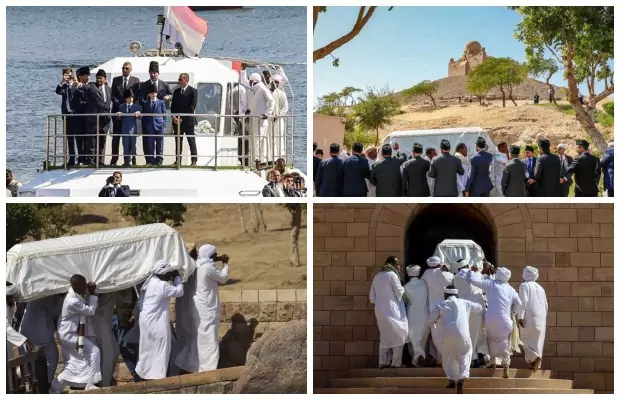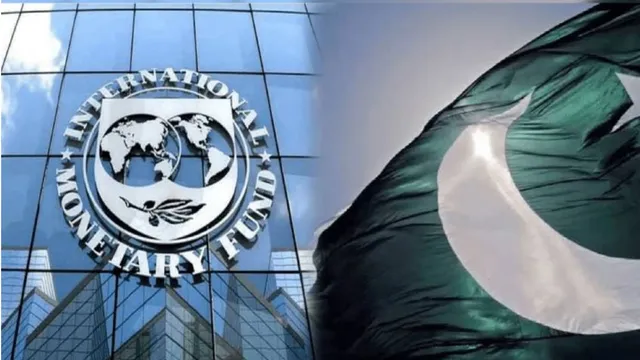Prince Karim Aga Khan IV, the 49th Aga Khan and spiritual leader of the Ismaili Muslims, was laid to rest in a private funeral ceremony on Sunday in Aswan, Egypt, fulfilling his lifelong wish to be buried near his paternal grandfather, Sultan Muhammad Shah Aga Khan, and his grandmother, Om Habiba. The announcement of his death was made on Tuesday by both the Aga Khan Development Network (AKDN) and the Ismaili community, marking the loss of a global philanthropist, businessman, and spiritual leader who played an influential role in fostering ties between the Muslim world and the West.
A private funeral service was held on Saturday at the Ismaili community center in Lisbon, where dignitaries from around the world gathered to honor the late Aga Khan. Among the attendees were Canadian Prime Minister Justin Trudeau, King Emeritus Juan Carlos of Spain, and President Marcelo Rebelo de Sousa of Portugal. This event also served as an opportunity for members of the Ismaili community and leaders from various faiths to pay their respects to a leader whose influence spanned decades.
Upon arrival in Aswan, the governor of the province extended a formal welcome to the Aga Khan’s family. According to Maj. Gen. Ismail Kamal, the prince had specifically requested this location for his burial, a request aligned with his desire to rest near his grandfather and grandmother, who had previously chosen Aswan as their final resting place.
The burial ceremony itself was steeped in tradition and was marked by a procession that saw Ismaili mourners walking in somber silence, carrying the body of the late Aga Khan wrapped in a white shroud. The procession was accompanied by the ringing of bells and featured both a van and a yacht as part of the tribute, as the mourners traveled along the Nile River, symbolizing a final journey.
Prince Karim Aga Khan IV, who assumed the leadership of the Ismaili community in 1957 at the young age of 20, was a visionary figure who transcended the role of a religious leader. Under his guidance, the Ismaili community flourished, and he became a prominent voice for interfaith dialogue, global development, and the advancement of education and healthcare.
The Aga Khan’s influence was not confined to religious leadership alone. He was also recognized as a significant business magnate and philanthropist, using his wealth and stature to spearhead major initiatives focused on improving the quality of life for millions of people across the globe. He founded the Aga Khan Development Network (AKDN), an umbrella organization that operates in more than 30 countries. This network addresses a wide range of issues, including healthcare, education, rural development, and housing, with an annual budget of approximately $1 billion for its nonprofit endeavors.
Over his leadership, the Aga Khan also played a central role in supporting architecture and culture, establishing institutions like the Aga Khan Museum in Toronto and the Aga Khan Trust for Culture, which works to preserve cultural heritage and promote the development of vibrant communities through the arts.
His legacy is a testament to his commitment to the betterment of humanity, as well as his pioneering work in creating sustainable development models that continue to impact both developing and developed nations. He worked tirelessly to bridge the gap between the Muslim world and Western societies, emphasizing cooperation, education, and mutual understanding as essential for global peace.
The new spiritual leader, Rahim Al-Hussaini, now becomes Aga Khan V, inheriting the responsibilities of guiding the Ismaili community through the challenges of the 21st century. The transition of leadership, in accordance with the late Aga Khan’s will, ensures continuity of the vision he set forth, carrying forward his mission of compassion, development, and progress for his people and the world at large.





